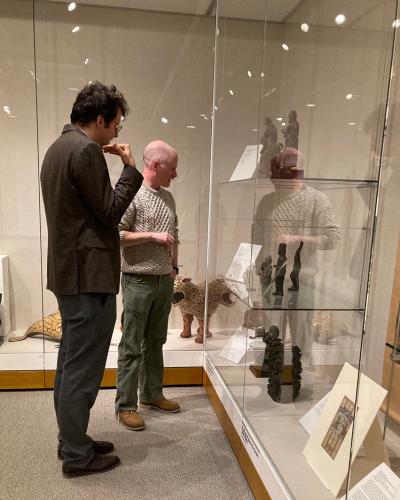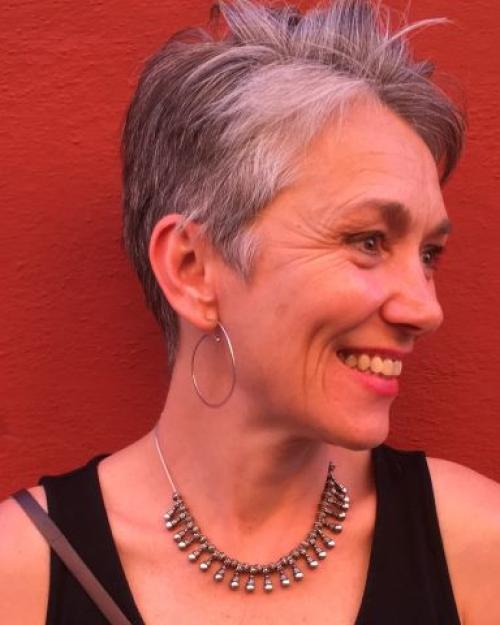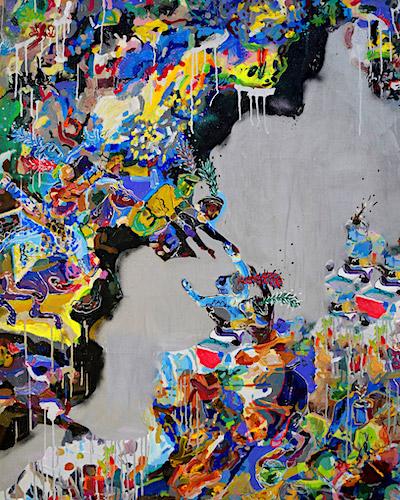Announcing the 2023-24 Fellows at the Society for the Humanities:
Paul Fleming, Taylor Family Director
Fellows
Kadji Amin, Women’s, Gender, and Sexuality Studies, Emory University
Trans Materialism without Gender Identity
Emma Elizabeth Campbell, School of Modern Languages and Cultures, University of Warwick, U.K.
A Moral Ecology of Creation: Gender and Sexuality in Medieval French Bestiaries
Mejdulene B. Shomali, Gender, Women’s, and Sexuality Studies, University of Maryland - Baltimore County
Palestine Matters: Aesthetics, Embodiment, and Pleasure in Palestine
Sarah Ann Wells, Literary Studies, University of Wisconsin-Madison
The Labor of Images: Strike Films, World Cinema, and the Collective Encounter
Ruslan Yusupov, Weatherhead Center for International and Area Studies, Harvard UniversityVolunteering for Diversity: Ethnic Muslim Outreach in Authoritarian China
Perry Zurn, Philosophy, American University
How We Make Each Other: Trans Poetics at the Edge of the University
Faculty Fellows
Amiel Bize, Anthropology
Indeterminate Value: Capitalism and its Others in Post-Agrarian Rural Kenya
Cristina Florea, History
Crossroads of Empire: Statehood and Culture at the Eastern Periphery of Europe
Kim Haines-Eitzen, Near Eastern Studies and Religious Studies
Crossing the River of Fire: Convergence, Kinesis, and Transformation in Late Antiquity
Parisa Vaziri, Comparative Literature and Near Eastern Studies
Saharan Crossings: Slavery, Healing and North African Cinema
Mellon Graduate Fellows
Stephanie Marie López, Romance Studies
Expectant Emotions: Affect, Maternity, and Temporality in Latin American Fiction
Dennis Wegner, German Studies
Crossing Linguistic Borders and Conceptual Boundaries: Queer Multilingualism and Russian-German Literature
Mellon Postdoctoral Fellows
Benjamin Barson, Africana Studies & Research Center
Julia Jong Haines, Anthropology
Morgan Thompson, Philosophy
Humanities Scholars Program Postdoctoral Associates
Ani Chen, Government
Peter Caswell, Romance Studies
2023-24 Focal Theme: Crossing
Crossing begins by opening a possibility: to meet or to pass by, to encounter in a spirit of collaboration or conflict. Like an X on a map, crossing marks both a place and a process, an intersection and a journey. Crossing entails navigating borders between states on scales ranging from the cellular to the geopolitical. As the embodiment of movement, crossing creates opportunity and transition, continuity and contact, collision and negation, while its infrastructures implicate objects, channels, and traces in the passage of bodies and ideas.
In its capacious fluidity, crossing describes incursions and excursions of all kinds. It can testify to migration and exile, to shifting formations of gender and sexuality, to cultures of creolization and code-switching. At the same time, it can denote an act of cancelation or erasure: a literal crossing out. The act of crossing two pen strokes forms an X that stands as a symbol of identification or denial, affirmation or rejection. Conversely, “crossed wires” as an admission of confusion can lead to unexpected or dangerous outcomes, as can roads or tracks that cross, and the confrontations they enable.
As a cultural-political phenomenon, crossing can be a transgression that breaks down boundaries of style and genre in music, fiction, and digital media. In forming junctions, engendering hybridity, and inevitably leading to entanglement, crossing is transient and provisional, inviting us to think beyond the ostensible stability of the categories it connects and bypasses as well as on the spaces in-between.
The Society for the Humanities invites applications from scholars and artists who are interested in participating in a productive, critical dialogue concerning the topic of crossing from a variety of disciplinary perspectives.
Image by Parham Ghalamdar via www.ghalamdar.com





